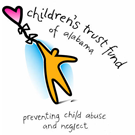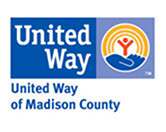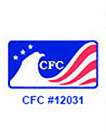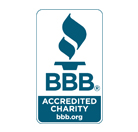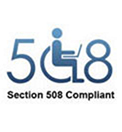Children between the age of 2 and 18 who have experienced a trauma may be referred for therapy. In addition, siblings of those children are eligible for services. Several types of therapy are offered, including Trauma-Focused Cognitive Behavioral Therapy (TF-CBT), Parent-Child Interaction Therapy (PCIT), and group therapy.
What to Expect
Therapy is a unique opportunity for a child to meet with a trained professional who is willing and able to work to establish goals for treatment and to develop a pathway toward achieving those goals. For children who are coming to therapy with a history of physical or sexual abuse, this process also uses research-based treatment that has been proven to be effective in coping with trauma. Occasionally, a child may leave a session feeling temporarily worse before realizing the full healing effect. Therapy relies on the child’s willingness to be open and to participate in the process, and the family should feel welcome to voice any concerns, discomfort, and scheduling issues with the therapist.
Caregivers and children coming to therapy for the first time will complete some introductory assessments about the child’s behaviors. This helps the therapists to focus therapy on the child’s biggest concerns. After completing the assessments,the caregivers and child meet and complete the paperwork necessary to being therapy. At this session, the caregivers and child meet with the therapist and complete paperwork necessary to begin therapy. The meeting allows the caregiver and child a chance to tell the therapist what brings them to therapy and what they would like specifically to work on in sessions. Following the intake session, the therapist will usually schedule weekly appointments with the child with the goal of eventually decreasing the number of sessions as the child improves.
Parents and guardians will be asked to participate in the majority of a child’s sessions in order to add to the child’s sense of support in the healing process. Participation and support are a vital aspect of therapy at the Children’s Building. This may involve participation in sessions with or without the child, availability in lobby during sessions for consultation as needed, and initiation by parent of meetings with the therapist.
Children younger than 14:
Parents and guardians may feel free to telephone or ask the therapist in person about any questions or concerns regarding the child's treatment.
Children 14 and older:
Participation, questions, and concerns on the part of the parents or guardians are subject to the confidentiality rights of the child. By law, a child aged 14 or older may choose to share or limit access to personal treatment information.
Evidence-Based Treatment Models at NCAC
Several types of therapy are offered, including Trauma-Focused Cognitive Behavioral Therapy (TF-CBT), Parent-Child Interaction Therapy (PCIT), and group therapy. TF-CBT is a treatment focused on helping children recognize how some of their thoughts, feelings, and behaviors have been shaped by their trauma. TF-CBT helps children to cope with and change those thoughts, feelings, and behaviors. PCIT is a treatment for parents and young children with disruptive behaviors designed to help parents and children interact more positively and effectively. Group therapy is an opportunity for children who have experienced trauma to meet, share their stories, and receive support and education together. The therapists using these therapies have been specially trained in these techniques.
Testimonials
"I believe that my NCAC counselor is an angel sent from Heaven to keep me safe from my father who did mean things to me. She helped me understand that I do not have to be scared because I have not done anything wrong. She has encouraged me by telling me that I was right to tell my mom even though my dad said that it was our special secret and that if I told my mom she would die. I love my NCAC counselor very much; she is very important to me. I look forward to seeing her and miss her when I don’t see her for a while. I feel she really cares about me and keeping me safe." - Anonymous


